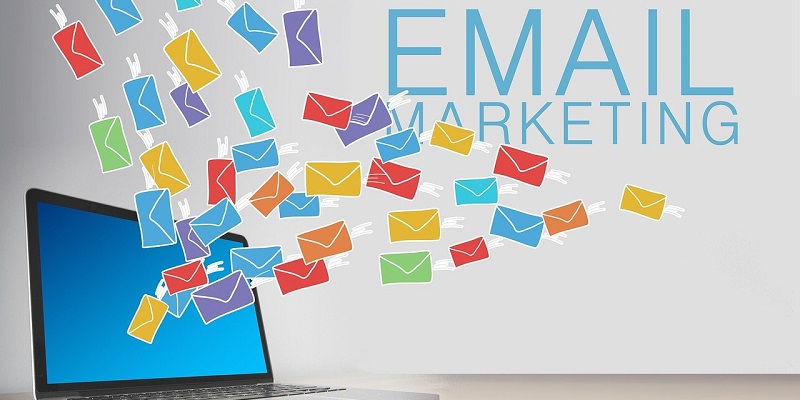In today’s digital age, email marketing has emerged as an essential tool for businesses to connect with their customers on a personal level. With the ability to reach a wide audience at a low cost, email marketing offers unparalleled opportunities for businesses to advertise their products or services, foster customer loyalty, and drive sales. This article aims to provide you with valuable insights and actionable tips to effectively utilize email marketing to reach your customer base and maximize the impact of your campaign.
Getting Started with Email Marketing
Starting an email marketing campaign may seem daunting at first, but by focusing on the following tips, you can simplify the process and achieve the desired results. These include creating a strong email list, targeting the right audience, utilizing compelling subject lines, and crafting engaging content that resonates with your recipients. By adhering to these tips, you can significantly increase the chances of your emails being opened, read, and acted upon by your customers. A well-executed email marketing strategy will not only build brand awareness and customer loyalty but also drive conversions and generate valuable leads.
Encouraging Sign-ups and Subscriptions
One effective way to entice customers to sign up for your marketing subscriber list is to offer valuable incentives, such as exclusive discounts, freebies, or vouchers. By providing tangible benefits, you increase the perceived value of joining your list, making it more likely that customers will willingly share their email addresses with you. Building a robust subscriber list is a critical aspect of email marketing success. By actively collecting email addresses from interested individuals, you create a pool of potential customers who have already shown interest in your brand or products. This allows you to target them specifically and tailor your messages, resulting in higher engagement and conversion rates.
The Importance of Only Emailing People You Know
To ensure a successful email marketing campaign, it is essential to send emails only to individuals who have willingly provided their email addresses or have shown interest in your brand. Unsolicited emails can damage your reputation, result in spam complaints, and even violate email marketing regulations.
Ensuring error-free emails and newsletters
Attention to detail is crucial when it comes to the content of your emails. Ensure that your emails and newsletters are error-free in terms of spelling, grammar, and sentence structure. Mistakes can undermine your professionalism and credibility, negatively impacting your brand perception.
Avoiding image-heavy emails
While visual content can be engaging, it’s best to avoid relying solely on images to convey important information. Many email clients and mobile devices block images by default, leaving recipients with incomplete messages. Including concise yet informative text alongside images ensures that your message is conveyed effectively, regardless of image visibility.
The Importance of Personalizing Messages
One-size-fits-all emails are far less effective than personalized messages. Take advantage of available customer data to customize and segment your emails, ensuring that the content aligns with your recipients’ preferences, interests, and purchasing behavior. By doing so, you can significantly increase open rates and generate a higher response from your subscribers. Maximize the impact of your email marketing campaigns by tailoring your messages to fit specific occasions, such as holidays or festive seasons. Use these opportunities to offer exclusive discounts, promotions, or limited-time offers, enticing customers to take action and make purchases.
Setting Expectations
When customers sign up for your email campaigns, it is essential to establish clear expectations regarding the frequency of emails, the type of content they will receive, and the value they can expect from being a subscriber. Transparent communication builds trust and reduces the likelihood of recipients unsubscribing or marking your emails as spam. By effectively managing expectations, you can create a mutually beneficial relationship with your subscribers. They will gain confidence in your brand, perceive value in your emails, and remain engaged. In turn, this will allow you to maintain a loyal customer base that is receptive to your messaging and more likely to convert into sales.
Writing Effective Subject Lines
Crafting subject lines that resonate with humans, rather than just algorithms, significantly increases the likelihood of your emails being opened and read. Your subject line should be concise, intriguing, and clearly convey the value or benefit your recipients can expect upon opening the email.
Tips for creating engaging subject lines
Experiment with various subject line techniques, such as personalization, urgency, curiosity, or humor, to captivate your recipients’ attention. Split-testing subject lines can help you gauge their effectiveness, allowing you to refine your approach and continuously improve your email open rates.
In conclusion, email marketing is a powerful and cost-effective tool that businesses can leverage to engage with customers, drive sales, and enhance brand loyalty. By following the tips outlined in this comprehensive guide, you can develop and execute successful email marketing campaigns. Remember to consistently provide valuable content, personalize your messages, and maintain clear communication to ensure long-term success. Implementing these strategies will allow you to unlock the full potential of email marketing and achieve remarkable results for your business.

